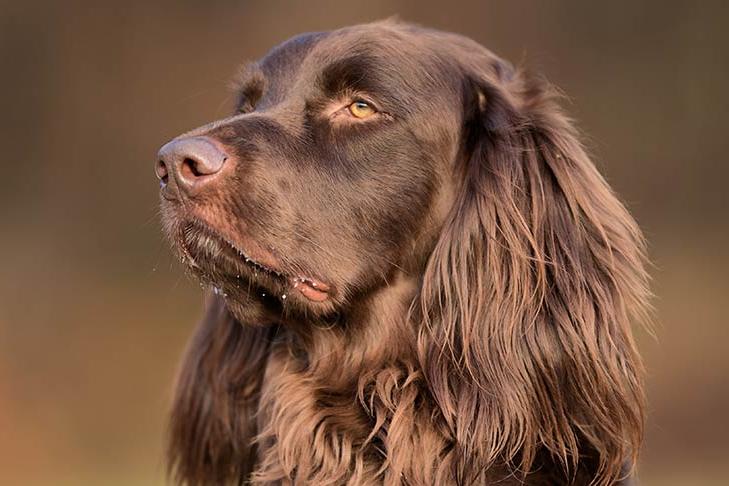- Breed Category: Gun Dog
- Country of Origin: Germany
- Average Height: Males 60-70 cm, Females 58-66 cm
- Average Weight: Males 30-35 kg, Females 25-30 kg
- Average Life Span: 12-14 years
- Grooming Requirements: Regular brushing needed
- Exercise Requirements: High, needs daily exercise
- Coat Type: Long, dense, and wavy
- Coat Color Variations: Brown, liver, or roan
- Shedding Level: Moderate
- Ear Type: Long and floppy
- Tail Type: Long and feathered
- Temperament: Friendly, intelligent, and energetic
- Intelligence Level: High
- Barking Tendency: Moderate
- Compatibility with Children: Good with proper socialisation
- Compatibility with Other Pets: Generally good
- Training Ease: Highly trainable
- Common Health Issues: Hip dysplasia, ear infections
- Dietary Needs: High-quality, balanced diet
- Energy Level: Very high
- Drooling Tendency: Low
- Sensitivity to Weather: Sensitive to extreme heat
- Overall Maintenance Level: Moderate
- Original Purpose: Hunting and retrieving
- Year of Recognition by Kennel Clubs: 1879
- Apartment Friendly: Not ideal, needs space
- Best Suited For: Active families, hunters
- Cost of Ownership: Moderate to high
- Unique Traits: Excellent swimmer, versatile hunter
Did you know that the Long-Haired German Pointer is one of the rarest breeds in the world? This elegant dog, known for its striking coat and keen hunting skills, has a rich history that dates back to the 19th century. Originally bred in Germany, these pointers were developed for their versatility in hunting and retrieving. They are not just about looks; their intelligence and loyalty make them excellent companions. This article aims to give you a comprehensive look at the Long-Haired German Pointer. We’ll explore their unique characteristics, delve into their fascinating history, and provide essential care tips. Whether you’re considering adding one to your family or just curious, you’ll find everything you need to know right here.
History and Origin
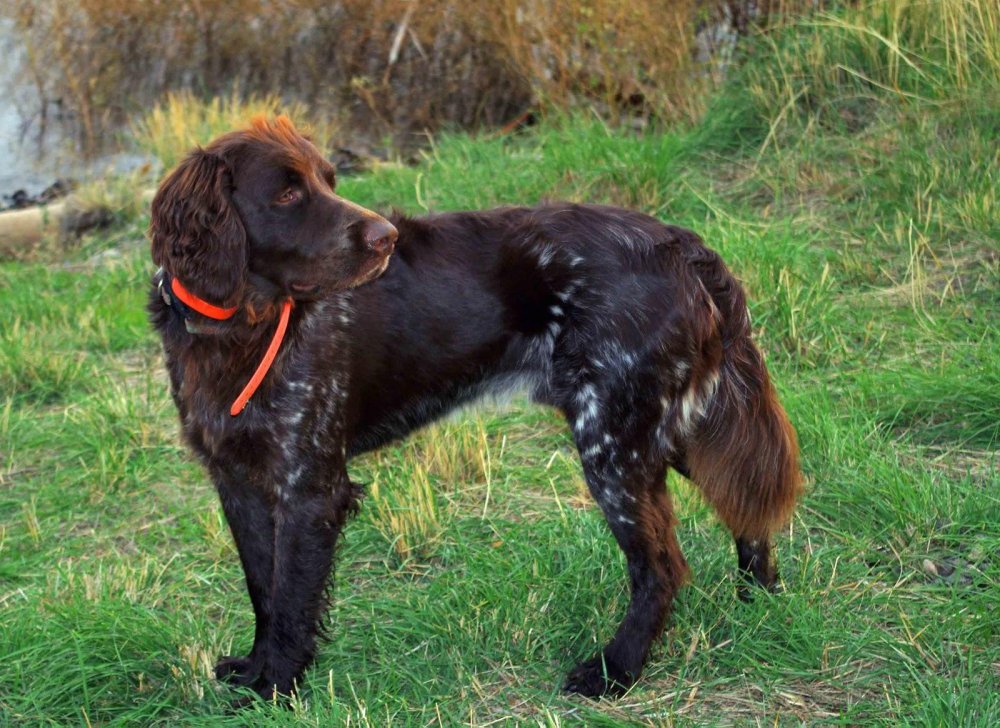
Early Development of the Breed
The Long-Haired German Pointer, with its roots in 19th-century Germany, was crafted with precision and purpose. Breeders aimed to create a dog that excelled in both form and function. The breed’s development focused on enhancing its hunting prowess while maintaining a striking appearance. This balance of beauty and skill was achieved through careful selection and breeding practices.
Role in Hunting and Retrieving in Germany
In the dense forests and open fields of Germany, these pointers became indispensable to hunters. Their keen sense of smell and agile bodies made them perfect for tracking and retrieving game. Unlike other breeds, the Long-Haired German Pointer was versatile, able to adapt to various terrains and hunting styles. This adaptability made them a favourite among hunters who needed a reliable and efficient partner.
Key Historical Figures Involved in the Breed’s Creation
Several notable figures played pivotal roles in the breed’s development. German aristocrats and hunting enthusiasts were instrumental in refining the breed’s characteristics. Their dedication to creating a dog that could meet the demands of hunting while also being a loyal companion was key to the breed’s success. These pioneers laid the foundation for what would become one of the most respected hunting breeds in the world.
Physical Characteristics
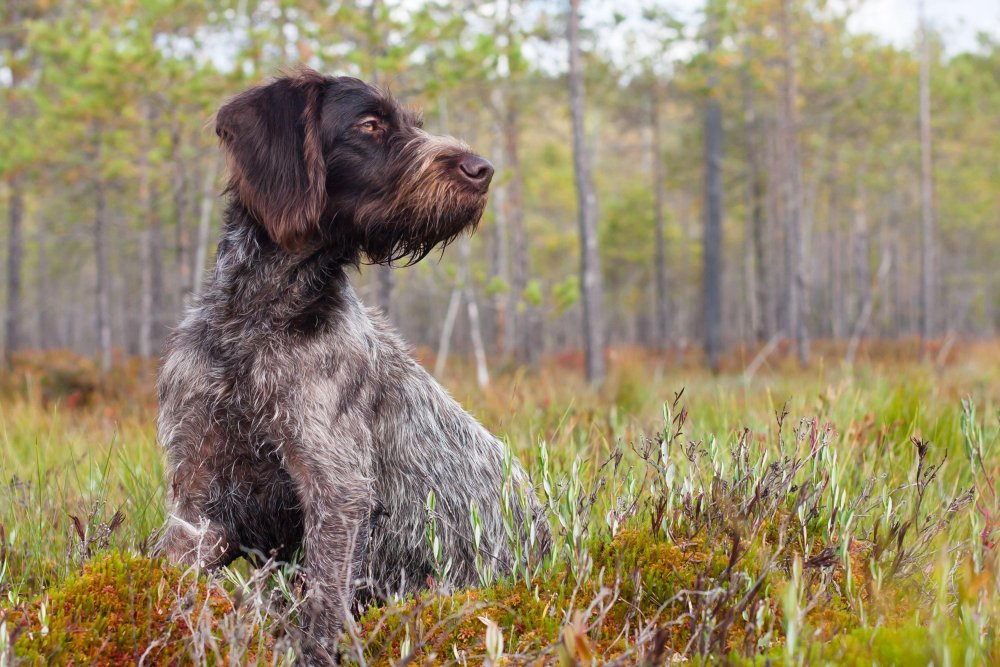
Appearance
The Long-Haired German Pointer is a sight to behold. Medium to large in size, these dogs boast a well-proportioned and athletic build. Their coat is a standout feature, with a luxurious, flowing texture that comes in a variety of colours, including liver, black, and sometimes a mix of both. Distinctive markings, such as white patches or ticking, add to their unique charm. This breed’s coat not only enhances their beauty but also provides protection during outdoor activities.
Unique Physical Traits
What sets the Long-Haired German Pointer apart is its elegant, athletic build. These dogs are designed for endurance and agility, making them perfect companions for active lifestyles. Their long, feathered ears and expressive eyes give them a noble appearance, while their strong, muscular legs ensure they can keep up with any adventure. This combination of grace and strength is what makes them truly special.
Temperament and Behaviour

Typical Personality Traits
The Long-Haired German Pointer is known for its loyalty and intelligence. These dogs are quick learners, making training a breeze. Their high energy levels mean they thrive in active households where they can get plenty of exercise. They’re not just smart; they’re also incredibly devoted, often forming strong bonds with their families.
Suitability as a Family Pet and Working Dog
This breed is a fantastic choice for families and those looking for a working dog. Their versatility shines through in both roles. As family pets, they are affectionate and protective, always eager to be part of the action. In a working capacity, their hunting instincts and stamina make them reliable partners in the field.
Interaction with Children and Other Animals
Long-Haired German Pointers are generally good with children, displaying patience and playfulness. They enjoy being part of family activities and are gentle with kids. When it comes to other animals, early socialisation is key. With proper introduction, they can coexist peacefully with other pets, although their hunting instincts may sometimes kick in.
Training and Exercise Needs

Importance of Early Training and Socialisation
Getting a Long-Haired German Pointer off to a good start with early training and socialisation is crucial. These dogs are intelligent and eager to learn, so introducing them to various environments, people, and other animals early on helps them grow into well-rounded adults. This foundation is key to preventing behavioural issues and ensuring they adapt well to different situations.
Recommended Training Techniques
Positive reinforcement is the way to go with this breed. They respond well to praise, treats, and play, making training sessions enjoyable for both you and your dog. Consistency is important, so regular, short training sessions work best. Incorporating games and activities that challenge their minds will keep them engaged and eager to learn.
Daily Exercise Requirements and Activities They Enjoy
These dogs have high energy levels and need plenty of daily exercise to stay happy and healthy. A mix of walks, runs, and playtime in a secure area is ideal. They love activities that tap into their natural instincts, like fetch or agility courses. Keeping them physically and mentally stimulated is essential to prevent boredom and destructive behaviour.
Health and Lifespan
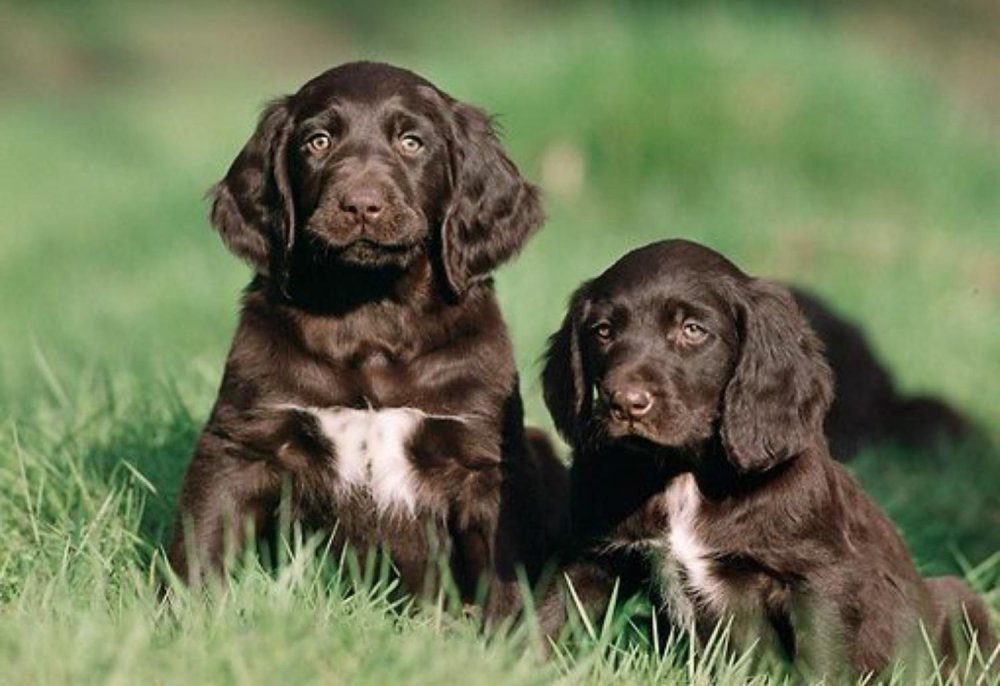
Common Health Issues
Long-Haired German Pointers are generally healthy, but like any breed, they can be prone to certain health issues. Hip dysplasia is a common concern, as it is with many larger breeds. Regular vet check-ups can help catch this early. Eye conditions, such as cataracts, may also occur, so keeping an eye on their vision is important. Additionally, ear infections can be a problem due to their long ears, so regular cleaning is recommended.
Average Lifespan and Health Tips
These dogs typically live between 12 to 14 years. To help them reach a ripe old age, a balanced diet and regular exercise are key. Keeping their weight in check will reduce stress on their joints, and mental stimulation will keep their minds sharp. Regular grooming, especially brushing their luxurious coat, will also help maintain their overall health.
Preventative Care Recommendations
- Schedule regular vet visits for health screenings and vaccinations.
- Maintain a consistent grooming routine to prevent skin and ear issues.
- Provide a balanced diet tailored to their age, size, and activity level.
- Ensure they get plenty of exercise to keep them fit and happy.
- Engage them in mental activities to prevent boredom and behavioural problems.
Grooming and Maintenance
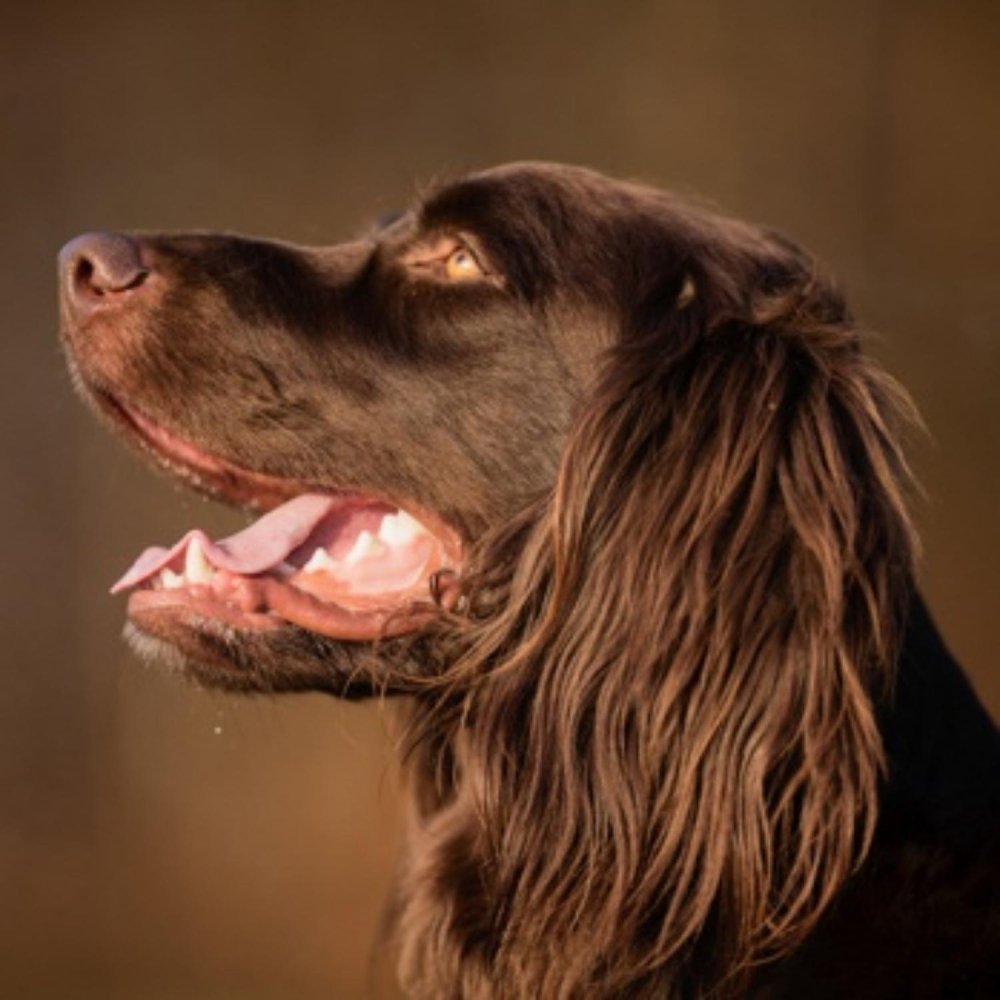
Coat Care and Grooming Routines
The Long-Haired German Pointer’s coat is a standout feature, requiring regular attention to keep it looking its best. A good brushing two to three times a week will help prevent tangles and mats, especially around the ears and tail. This routine not only keeps their coat healthy but also reduces shedding around the home. A slicker brush or a comb designed for long-haired breeds works wonders in maintaining their luxurious coat.
Shedding and Seasonal Grooming Tips
While these dogs do shed, it’s usually more noticeable during seasonal changes. During these times, daily brushing can help manage the extra hair. A bath every few months, or as needed, will keep their coat clean and shiny. Be sure to use a dog-friendly shampoo to avoid skin irritation. Regular grooming sessions also provide a great opportunity to check for any skin issues or parasites, ensuring your dog stays in top condition.
Diet and Nutrition

Nutritional Needs for Optimal Health
Feeding your Long-Haired German Pointer the right diet is crucial for their health and vitality. These active dogs need a balanced diet rich in proteins, healthy fats, and essential vitamins. Proteins support muscle development, while fats provide the energy they need for their active lifestyle. Don’t forget about fibre, which aids digestion and keeps their gut healthy.
Foods to Include and Avoid
Include high-quality dog food with real meat as the first ingredient. Look for options with omega-3 and omega-6 fatty acids for a shiny coat and healthy skin. Avoid foods with artificial additives, fillers, and excessive grains, as these can lead to allergies and digestive issues. Fresh fruits and vegetables can be great treats, but steer clear of toxic foods like chocolate, grapes, and onions.
Feeding Schedules and Portion Recommendations
Establishing a consistent feeding schedule helps maintain their energy levels and prevents overeating. Typically, two meals a day work well for adult dogs. Puppies may need more frequent, smaller meals. Portion sizes depend on their age, weight, and activity level, so it’s best to consult with your vet for tailored advice. Always ensure fresh water is available to keep them hydrated.
Fun Facts and Trivia

Interesting Tidbits About the Breed
The Long-Haired German Pointer is not just a pretty face; it’s a breed with some fascinating quirks. Did you know they have webbed feet? This unique feature makes them excellent swimmers, perfect for retrieving game from water. Their coat, while beautiful, also serves a practical purpose, providing insulation and protection in harsh weather conditions.
Another interesting fact is their incredible sense of smell. These dogs can track scents over long distances, making them invaluable in search and rescue operations. Their intelligence and problem-solving skills are often compared to those of a Border Collie, which is quite the compliment!
Famous Long-Haired German Pointers in Media or History
While not as commonly seen in the limelight as some other breeds, the Long-Haired German Pointer has had its moments of fame. In the world of literature, they have been featured in several hunting and adventure stories, showcasing their skills and loyalty. Historically, they were favoured by German nobility, often seen accompanying aristocrats on hunting expeditions.
In more recent times, these dogs have made appearances in documentaries highlighting their versatility and intelligence, further cementing their reputation as exceptional working dogs. Their unique combination of beauty and brains makes them a standout in any setting.
Final Thoughts
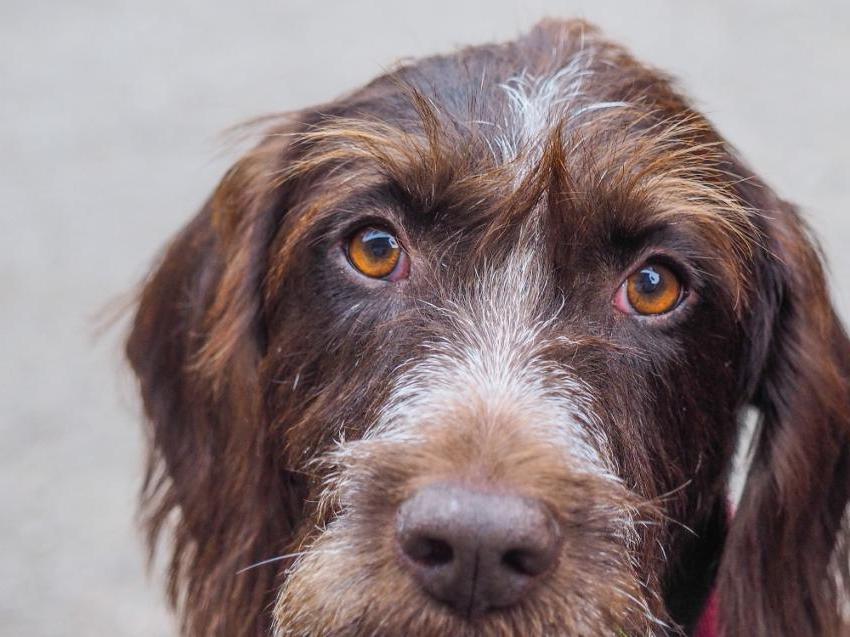
The Long-Haired German Pointer is a remarkable blend of beauty and skill. This breed’s intelligence and versatility make it a standout choice for active families and hunters alike. With its rich history and unique characteristics, owning one of these dogs is both a rewarding and demanding experience. Embrace the journey of companionship and adventure with this exceptional breed, ensuring a fulfilling life for both you and your dog. Consider welcoming a Long-Haired German Pointer into your life and experience the joy of a loyal, energetic partner.
